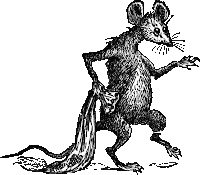 |
| Les Halles |
I’ve just finished Emile Zola’s
Le Ventre de Paris (1873) or
The Belly of Paris. It’s an extraordinary book, quite difficult to describe in a single post. Wikipedia sums up the plot well
enough :-
It is set in and
around Les Halles, the enormous, busy central market of 19th Century Paris. Les
Halles, rebuilt in cast iron and glass during the Second Empire was a landmark
of modernity in the city, the wholesale and retail center of a thriving food
industry. Le Ventre de Paris is Zola's first novel entirely on the working
class.
The protagonist is
Florent, an escaped political prisoner mistakenly arrested after the French
coup of 1851. He returns to his step-brother Quenu, a charctuier and his wife
Lisa Quenu, with whom he finds refuge. They get him a job in the market as a
fish inspector. After getting mixed up in an ineffectual socialist plot against
the Empire, Florent is arrested and deported again.
The setting is rather more than Les Halles though – it is
food and the political significance of food to those who eat their fill and those who don’t. Vivid, luscious descriptions of food fill the book to repletion
and beyond – deliberately so. Mountains of food feed not merely the belly of Paris, but the whole social and political structure too.
Towards the end though, as the net closes in on Florent and
his naive schemes, the images of superabundant food become heavy and oppressive. Satiety sets in and it's cleverly done - creeping up on you like those last few morsels you really could have done without. Zola even slips in a sense of conflict, death and decay via the
cheese market.
But it was upon the
table that the cheeses appeared in greatest profusion. Here, by the side of the
pound-rolls of butter lying on white-beet leaves, spread a gigantic Cantal
cheese, cloven here and there as by an axe, then came a golden-hued Cheshire,
and next a Gruyere, resembling a wheel fallen from some barbarian chariot;
whilst farther on were some Dutch cheeses, suggesting decapitated heads
suffused with dry blood, and having all that hardness of skulls which in France
has gained them the name of “death’s heads.”
The book has also been called in English, Fat and Thin, a
reference to the simple socialism of the radicals :-
In these designs
Claude detected the entire drama of human life, and he ended by classifying men
into Fat and Thin, two hostile groups, one of which devours the other, and
grows fat and sleek and enjoys itself. “Cain” said he, “was certainly one of
the Fat, and Abel one of the Thin. Ever since that first murder, there have
been rampant appetites which have drained the life-blood of small eaters. It is
a continual preying of the stronger upon the weaker; each swallowing his
neighbour, and then getting swallowed in his turn. Beware of the Fat, my
friends.
As well as the novel itself and the ingenious way Zola unfolds his
design, we are treated to some fascinating social and political vignettes of
the times.
Madam Lecoeur inquired
what was done to the people who got arrested “for politics,” but on this point
Mademoiselle Sagat could not enlighten her; she only knew that they were never
seen again – no, never.
Mother Chantemesse
made a speciality of pared vegetables; on her stall, covered in a strip of damp
black lining, were little lots of potatoes, turnips, carrots, and white onions,
arranged in pyramids of four - three at the base and one at the apex, all quite
ready to be popped into the pans of dilatory housewives.
Every morning little
closed box-like carts, lined with zinc and furnished with ventilators, drew up
in front of the larger Parisian kitchens and carried away the leavings of the
restaurants, the embassies, and State Ministries. These leavings were conveyed
to the market cellars and there sorted. By nine o’clock plates of food were
displayed for sale at prices ranging from three to five sous, their contents
comprising slices of meat, scraps of game, heads and tails of fishes, bits of
galantine, stray vegetables, and, by way of dessert, cakes scarcely cut into,
and other confectionary.























